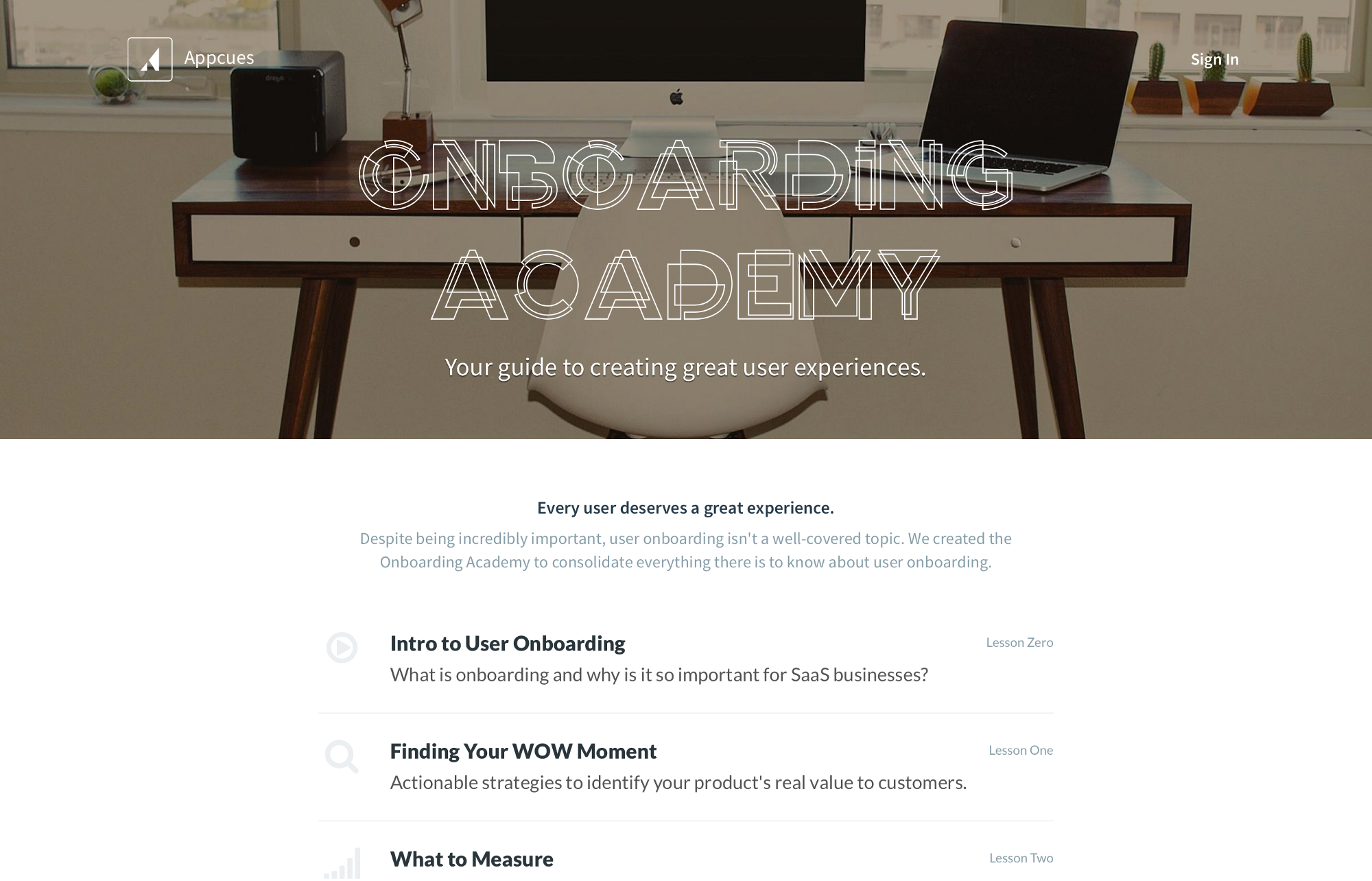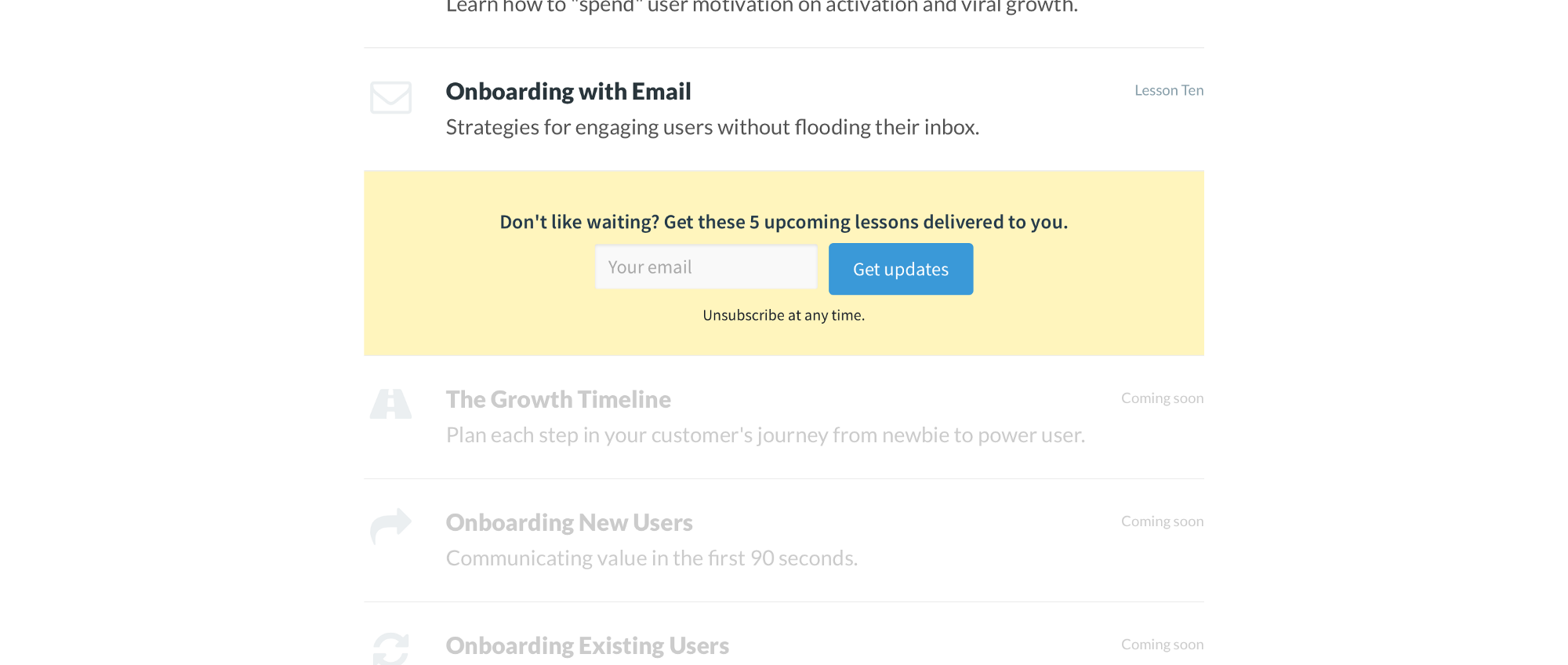Does my startup need a blog?

.png)

.png)
The short answer: no. There’s a better way.
I’m a follower of Lean thinking and have become addicted to the thrill and benefits of immediate feedback. When starting Appcues, I wanted (maybe needed) to get those same benefits from my marketing activities. My ideal marketing strategy was:
If I’m being honest, I wanted the results of a mature inbound marketing strategy but wasn’t willing to put in the work. I didn’t have a better strategy at the time, but I knew a traditional blog wasn’t it.
After a few months of working on Appcues, a friend of mine showed me Segment’s Analytics Academy. I didn’t get it at the time, but he was convinced that it was “genius.” I created the Appcues User Onboarding Academy a few weeks later, and only then did I realize what he meant. It’s genius.
I’ve shared this tip with many other startup founders. It’s nothing too special, but I consider it to be one of the keys to Appcues’ early growth and success in inbound marketing.

Content Academy vs. Blog
Let’s take a look at the physical differences that make up a great content academy.
Whereas blogs are limitless, an academy should have a clear start (matriculation) and end (graduation).
A good academy will tell a cohesive story that gradually increases in sophistication. Each post should build upon the previous one.
Just like any good traditional class, a content academy should give the reader a feeling of competence in a certain area.

An early version of the Appcues User Onboarding Academy
The User Onboarding Academy had all of the benefits I wanted from a content strategy:
It’s evergreen, so you don’t need to keep up with a tireless blog schedule.You can launch iteratively. Have some articles “coming soon” to gauge interest.If you treat it like a class, it lends itself heavily to an email subscription (hello, lead gen).

Adding a teaser boosts email subscription and validates the roadmap
The Academy even had additional benefits that I didn’t plan for upfront:
The prestigious format attracted guest contributors who had (or wanted) authority in the topic.The content was easy to repurpose into an eBook, video series, email drip, and other types of sequential content.Future blog articles were added to the Academy as related reading, turning our Academy into a content “hub.”
Appcues now has an amazing blog that I’m really proud of. We write 2–3 articles a week and dwarf the Onboarding Academy in relative traffic, and it complements the Academy very well.
We launched the blog in summer 2015. At that point, we had seen enough of the benefits of a strong content strategy that it made sense to double down, and we already had a solid foundation to build upon.
We also started feeling a few of the shortcomings of the Academy play out. The format didn't lend itself to some of the things we wanted to write about:
One of our most popular posts is about Atlassian’s onboarding, written and shipped around the time of their IPO. We could never have fit that into to the Academy.
It’s hard to go too deep into a specific topic without losing the audience. Even within user onboarding, there are so many nuances and strategies, like Goal-Oriented Design, that would have been too specific for a general audience.
Because it’s a class, there was little room to promote our product. Eventually, academy graduates wanted to know how to apply what they learned. The answer was, “Use Appcues,” but we couldn’t say that in an academy format.
Plus, an academy's gotta end sometime. To keep quality high and adhere to the “class” format, we needed to wrap things up.
Whenever I meet a fellow entrepreneur, one of the first things I ask them about is their content strategy. I’m not one to volunteer advice, but starting an academy is something I go out of my way to tell people. For a passionate entrepreneur, it’s the perfect way to share expertise and build authority on a limited time/resource budget.
Dear reader: I love finding high leverage opportunities. If you have some of your own, I’d love to hear about them!